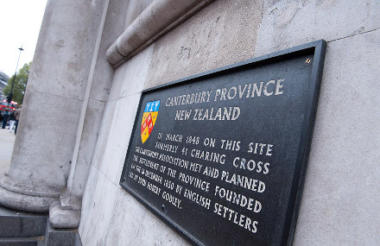The Department for International Development is piloting new funding guidelines designed to ensure charities receive full cost recovery on their activities.
New templates and guidance will be the default for all grants made after October 2018, before being developed and made mandatory for all DfID funding, including contracts, from spring 2019.
The new calculation for “non-project attributable costs” involves taking an average of the organisation’s costs structure over the past three years, excluding costs that DfID would consider ineligible such as fundraising costs, and then making a number of adjustments to ensure DfID pays “a fair share” of costs.
DfID initially presented draft models in October 2017 and has been working on them with a small group of civil society organisations since then.
The plan is revealed in a blog post co-written by Graham MacKay, chief operating officer at Bond, and Tim Boyes-Watson, global director, alliances and advocacy at the international membership and training organisation Humentum.
They write: “What is the true cost of delivering DfID grants? This is a question we have been working on closely with DfID for several years now.
“A lack of transparency or inadequate cost recovery on these grants has not been in the interests of the donor, DfID, nor the NGOs delivering the work. Nor has it best served the people living in poverty, facing conflict or climate change for whom the grant was originally designed to help.”
Average core costs stand at 25.4 per cent
Statutory funders across the world have historically failed to ensure that a fair share of charities’ core costs are covered in grants and contracts, and campaigners hope that DfID’s actions will set a precedent that others will follow.
Notably, the lack of funding for core costs was raised by international development charities as one of the barriers to implementing effective safeguarding measures following the Oxfam scandal earlier this year.
However, DfID had recognised before then that not only were core costs not being sufficiently funded, but also that smaller NGOs were being excluded from funding as they did not have the economies of scale to compete.
The scale of the problem was demonstrated in 2016 by a benchmarking study conducted by the advisory charity Mango (now part of Humentum) and Bond.
Among 26 participating INGOs, central support costs varied between 4 and 26 per cent of total expenditure, but averaged at 11.4 per cent.
On top of this, “programme support costs” (often the costs associated with operating regional or country offices) also needed to be factored in, and these averaged at 14.0 per cent.
Comparing these total indirect costs of 25.4 per cent to the amounts funders were actually paying highlighted a large funding gap.
On average, funders were paying just 6.9 per cent, with the United Nations the worst performer at 5.0 per cent.
|
Related articles











